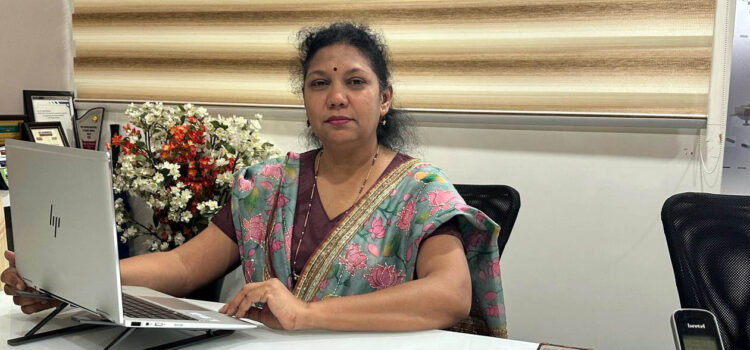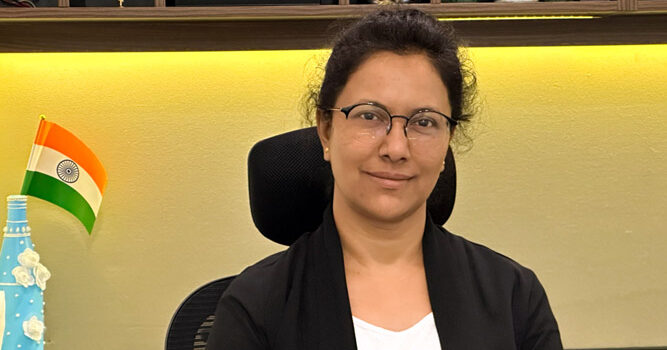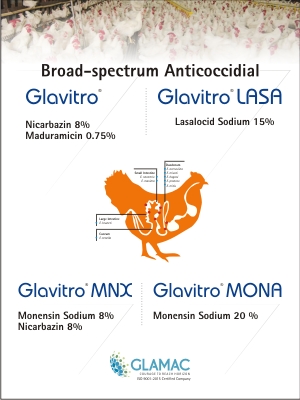Dr. Anju Ajay Deshpande is a veterinarian turned into an entrepreneur. She completed BVSc. from Nagpur Veterinary College and MVSc. in VPH from COVAS Mannuthy. She has worked at various levels, her journey started as veterinary biosecurity officer, as of today she is the director of various organisations engaged in poultry business.
In an exclusive interview to Poultry TRENDS magazine, Dr. Anju shares about her journey, challenges, accomplishments and her message to women.
Q: Please brief us about your background
Dr. Anju Deshpande: My parents were government employees and during my growing up days, I was fortunate to travel pan India gaining exposure of places and things. I realised the huge scope in veterinary science and work offering more flexibility than medical field. Veterinary Public Health specialisation was one of the hottest things, as it is a bridge between human health and animal health science. At the time, there were not many openings for epidemiologists or animal-based food industries in India though. I chose the poultry industry, which was just getting off the ground. However, to gain experience, there were very few poultry companies offering jobs to lady veterinarians.
Q: How was your job as a poultry veterinarian
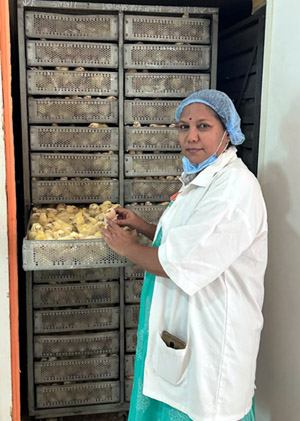 Dr. Anju Deshpande: In 1995, I joined United Hatcheries Pvt. Ltd. Hyderabad. I may have been the only lady veterinarian in India who not only worked but also stayed at the poultry breeding farm. It was not considered a white-collar job then, and even now very few professionals opt for this job, because, usually breeding farms are in remote places, far away from the nearest village with harsh conditions. However, it was there that I learned the very basics of the poultry industry. After that I worked for Pure Line Poultry Breeding farm too in Tarkeshwara Hatcheries Pvt. Ltd., Nashik.
Dr. Anju Deshpande: In 1995, I joined United Hatcheries Pvt. Ltd. Hyderabad. I may have been the only lady veterinarian in India who not only worked but also stayed at the poultry breeding farm. It was not considered a white-collar job then, and even now very few professionals opt for this job, because, usually breeding farms are in remote places, far away from the nearest village with harsh conditions. However, it was there that I learned the very basics of the poultry industry. After that I worked for Pure Line Poultry Breeding farm too in Tarkeshwara Hatcheries Pvt. Ltd., Nashik.
Later I worked in various positions that required a variety of skills – as an LDO extension, a Lecturer for the State Level Training Centre for officers. After completing “Poultry Viral Vaccine Production Certification” in IVRI, I worked for the Institute of Veterinary Biologicals Pune.
Q: When did you get the idea to start a business and how you started?
Dr. Anju Deshpande: Since my first job, I always thought about the fact that while many veterinary doctors were employees in the poultry industry, and in spite of being domain experts, why they couldn’t become businessmen. But now I understand that only few have the courage to burn their ships. I always had a dream of having my own business someday, to create employment for myself and others. Big dreams, though without any resources or experience.
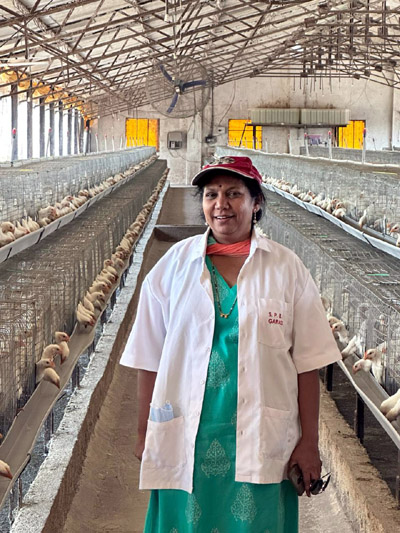 During my second job in Tarkeshwara Hatcheries, I met Ajay who was working as Production Manager. Ajay is BVSc from College of Veterinary and Animal Sciences, Parbhani and also my batch mate. As part of his job, he was required to remain in remote area without basic facilities, be it a hospital, market or local transport. I started discussing my business ideas with him as even before we got married, my ideas about creating our own business had started taking shape. However, I was only able to work towards it when I was selected for a government job through MPSC.
During my second job in Tarkeshwara Hatcheries, I met Ajay who was working as Production Manager. Ajay is BVSc from College of Veterinary and Animal Sciences, Parbhani and also my batch mate. As part of his job, he was required to remain in remote area without basic facilities, be it a hospital, market or local transport. I started discussing my business ideas with him as even before we got married, my ideas about creating our own business had started taking shape. However, I was only able to work towards it when I was selected for a government job through MPSC.
We then decided that instead of me, my husband could start business and I would support him in initial stages and later, join the business. This was the time when our first child was 2 years old.
In 2003, we started with a small broiler breeder farm with the help of mentors and well-wishers. Our first child was 6 and second was 2 by then.
Q: How did you contribute and support the new venture?
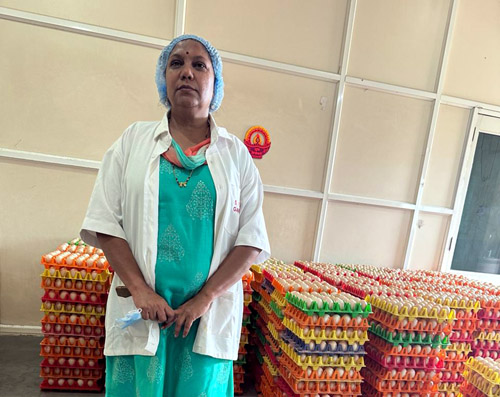 Dr. Anju Deshpande: In spite of being in a government job, I was one of the founder members in our company. I was always closely involved in policy matters, as we were investing almost every penny of our life-savings there. Being a permanent government employee and a class one officer, I was always the guarantor for the business loans we required.
Dr. Anju Deshpande: In spite of being in a government job, I was one of the founder members in our company. I was always closely involved in policy matters, as we were investing almost every penny of our life-savings there. Being a permanent government employee and a class one officer, I was always the guarantor for the business loans we required.
I started by learning new skills, like accounting, preparing balance sheets, understanding taxes helping him, going to farm on holidays. Discussing practical problems and finding solutions till late waking hours was our routine for years. Even our children’s picnics were always only on poultry farms. Long drives to attend relatives or visiting family was opportunity to discuss more about our experiences with the poultry business. We couldn’t have achieved the goal without each other as team.
Q: What were challenges as first generation in business?
Dr. Anju Deshpande: Major challenges came forth in facing and losing everything at the time of first Bird flu pandemic. Rebuilding from zero was quite an experience; we supplied eggs and sprouts and vegetable to marts to retain our staff in pandemic period.
As a government officer I had to work hard and travel to remote villages to support my family for 15 long years, until our business could support me. Those years weren’t as difficult as waiting for my aspiration; to be able to work full time for my own business; I wanted to explore new ideas, so, letting-go of golden opportunities was a challenging thing for me. In those days, the private sector was growing and everyone was busy, it was difficult seeing the world pass by, while we were simply making ends meet. Whatever money we earned and saving through sacrificing on small things was invested in the business. And, the year Ajay paid his personal tax as much as my salary, I felt free to resign from my government job. By that time, I had some minor health issues, but finally I left the government job, leaving the tension and the highly sought pension.
Q: How did you overcome your hurdles?
Dr. Anju Deshpande: Each hurdle was dealt with as it came but generally speaking, we prepared ourselves for hurdles by anticipating. By thinking ahead and planning, sticking to the agenda, and living for the dream. Other things helping cope up were hard-work of course and keeping personal expenses to a minimum.
I was always prepared so that whenever opportunities presented, we were ready to commit. Avoiding toxic relations helped maintain energy levels to cross hurdles. We kept our morale high, encouraging and appreciating each other, acknowledging the efforts and celebrating small achievements. All is easier said than done. I must say hurdles were easier only because we helped each other in work and at home too. At times Ajay babysat without complain plus my mother always rushed whenever we needed. These things helped me a lot while raising kids.
Q: Where do you find yourself today, tell us about your accomplishments?
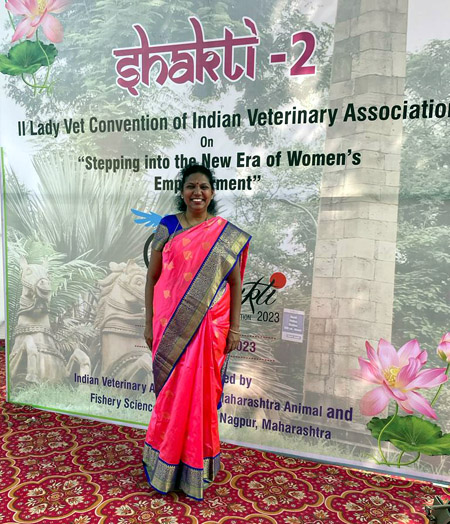 Dr. Anju Deshpande: I have planted and nurtured more than 500 trees on our farms, the pleasure is immeasurable. We have 400 employees and that gives me immense happiness.
Dr. Anju Deshpande: I have planted and nurtured more than 500 trees on our farms, the pleasure is immeasurable. We have 400 employees and that gives me immense happiness.
Besides that currently, I am one of the four directors at Siddhivinayak Poultry Breeding Farm and Hatcheries Pvt. Ltd. The company now has 1 lakh broiler breeders and placement of 20 lakh chicks per month in contract farming.
I am also a director and partner in Avian Research & Development Pvt. Ltd, where my focus is on creating marinated chicken products.
My other company is Percept-Accuity Techno-soft Pvt. Ltd, which specializes in an ERP software designed for all aspects of the poultry industry.
Q: What are your strengths?
Dr. Anju Deshpande: I am focused about my goals. I am aware of what I do want. I appreciate everyone for who they are and cherish every moment. While I am most of the times positive for the future, even in case of failure, I feel like I have given it a good throw and the journey was worth it.
Q: What are you passionate about?
Dr. Anju Deshpande: I am a very passionate person. I take all my responsibilities seriously, whether it is professional work, business and ambience, creating, learning and teaching, or managing my home and cooking for my loved ones. I am usually engrossed in learning new things which I do by reading, watching and keenly observing people and processes.
I share professional and life skills knowledge selflessly. I love to train people for the technical knowhow and soft skills that are essential for optimum performance and dynamic involvement in work. I am happy to delegate work to my teammates. I believe everyone has talent and value, if given space and time. I also love multi-tasking and managing my time. The most rewarding thing for me is finish the work in hand and still have ample time, to explore new things.
Q: What does Power mean to you?
Dr. Anju Deshpande: For me, power is within. It means to be self-sustained, able to survive in all odds and grow big and grow wise. Being strong enough to support others is a mental power. Any individual doing that is powerful.
Q: What are the prerequisites for women to do business?
Dr. Anju Deshpande: Love is the force of all creations and manifestations, love for business is basic. Besides this, knowledge of the sector, deep desire to win, perseverance, courage to risk it all, basic skill-sets and strong support systems to depend on are some prerequisites. Encouragement, appreciation and nurturing is needed for anything to take root and grow.
Q: Any message for women?
Dr. Anju Deshpande: I have three messages for all the women:
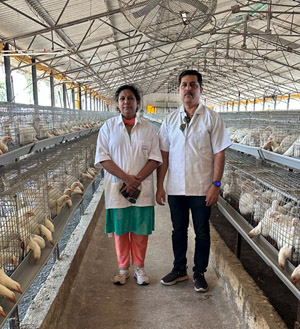
-
Firstly, know yourself; you are already empowered by natural resilience and complex brain wirings. Women work shoulder to shoulder with men, but hesitate to come in the limelight. My message is “be assertive and learn to take credit of your own work proudly and gracefully, and never let anyone brush you or your words aside”.
-
Second, I feel that every lady should understand the synergetic power of yin and yang. Successful women are successful often because they got support somewhere, from their father, brothers, husband, sons, friends, sometimes from all of them. When necessary, for your pride, fight it out, but don’t be mean to men, cherish and love if you have them in your life.
-
Lastly, show your man how to support you at home and in the kitchen, it doesn’t make you weak, but it makes him strong.
Dr. Anju Deshpande can be connected at LinkedIn


